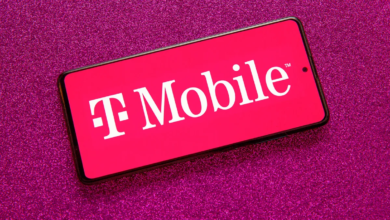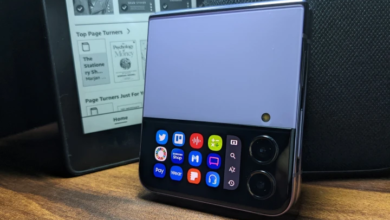The Influence of AI Speech Generators in 2024

In the ever-evolving landscape of technology, the year 2024 marks a significant milestone in the field of artificial intelligence. AI speech generators have emerged as a groundbreaking innovation with far-reaching implications. This article delves into the profound influence of AI speech generators in 2024, exploring their applications, impact on industries, ethical considerations, and the exciting possibilities they bring to the table.
Understanding the Influence of AI Speech Generators
What Are AI Speech Generators?
AI speech generators, also known as text-to-speech (TTS) systems, are sophisticated applications of artificial intelligence. These systems are designed to convert written text into natural-sounding human speech. The primary goal is to create an auditory experience that closely mimics the way humans speak.
How Do AI Speech Generators Work?
AI speech generators operate using complex algorithms, primarily deep learning models. These algorithms analyze the text provided to them and generate corresponding audio waveforms. These waveforms are then played back, producing speech that sounds remarkably human.
What Makes AI Speech Generators Unique?
The uniqueness of AI speech generators lies in their ability to generate speech in multiple languages accents and even adjust the tone and pace of speech to convey different emotions. This versatility makes them incredibly valuable in various applications.
Read More: Stop using generative AI tools such as ChatGPT, Samsung orders staff.
The Evolution of AI Speech Generation
Early Developments
AI speech generation has a rich history that dates back to the early 20th century. However, early attempts at generating speech through machines were characterized by robotic and unnatural voices. These rudimentary systems lacked the finesse and realism that modern AI speech generators offer.
Modern Advancements
Fast forward to the present, and AI speech generators have undergone remarkable advancements. Improvements in machine learning and neural networks primarily drive these advancements. Today, they can produce speech that is so lifelike that it’s often challenging to distinguish from human voices.
Applications of AI Speech Generators
AI speech generators have found their way into numerous applications across various industries:
Accessibility and Inclusivity
One of the most impactful applications is enhancing accessibility for individuals with disabilities, particularly the visually impaired. AI speech generators can convert written text into audio, enabling visually impaired individuals to access information independently.
Content Creation
In the world of content creation, AI speech generators have revolutionized how audio content is produced. Content creators across different platforms, such as podcasts and YouTube, use TTS technology to streamline their content creation processes.
Language Translation
AI speech generators break down language barriers by translating and pronouncing text in multiple languages. This is invaluable for global communication, as it facilitates understanding among people who speak different languages.
Ethical Considerations
While AI speech generators offer tremendous benefits, they also raise ethical concerns:
Deepfake Concerns
As AI speech generators become more sophisticated, there are concerns about their potential misuse in creating deepfake audio recordings. These could be used for deception, misinformation, or even identity theft.
Privacy and Data Security
Protecting user data and ensuring the privacy of voice recordings is critical. Stricter regulations and robust security measures are essential to prevent breaches and safeguard sensitive information.
Impact on Industries
Healthcare
In the healthcare sector, AI speech generators have found utility in medical transcription services. This not only saves time but also reduces the margin of error, ensuring accurate medical records.
E-Learning
The education industry has witnessed a paradigm shift with the integration of AI speech generators. Interactive learning modules and audiobooks have become more engaging, catering to diverse learning styles.
Customer Service
Customer service chatbots now employ AI speech generators to provide more natural and helpful interactions. This enhances customer satisfaction and streamlines support operations.
Ethical Considerations
Deepfake Concerns
As AI speech generators become more sophisticated, concerns about deepfake audio recordings and their potential misuse have arisen. Addressing these ethical issues is crucial to prevent misinformation and fraud.
Privacy and Data Security
Protecting user data and ensuring the privacy of voice recordings are paramount. Stricter regulations and robust security measures are required to safeguard against potential breaches.
The Future of AI Speech Generators
As we look ahead, the future of AI speech generators holds exciting possibilities that could revolutionize the way we interact with technology and each other.
Personalized Voices
One of the most intriguing developments on the horizon is the ability to personalize AI-generated voices. Imagine being able to choose the voice style, accent, and even the personality of your virtual assistant or the narrator of your audiobook. AI speech is poised to offer this level of customization, making interactions even more human-like and engaging.
This personalization can have profound implications for user experiences across various applications. It can make AI-driven interactions more relatable and tailored to individual preferences. For instance, users might select a friendly, conversational voice for their virtual assistant, making interactions feel more like talking to a trusted friend.
Integration with Virtual Reality
Virtual reality (VR) is another frontier where AI speech is set to make a significant impact. In the world of VR, creating immersive experiences is essential. AI-driven speech generation can play a pivotal role in this regard by providing lifelike voices to virtual characters and enhancing the overall sense of presence.
Imagine exploring a virtual world where the characters you encounter speak with natural, emotionally expressive voices. This integration can make storytelling in VR more compelling and interactive. It can also improve communication in virtual meetings and training simulations, creating a more engaging and realistic environment.
Multimodal Interactions
The future of AI speech extends beyond audio interactions. These systems are evolving to support multimodal interactions, combining speech with other sensory inputs like gestures, visuals, and even haptic feedback. This convergence of technologies can lead to richer and more immersive experiences.
For instance, in augmented reality (AR) applications, AI speech can provide audio feedback while users interact with digital objects in the real world. This combination can enhance learning experiences, navigation in unfamiliar environments, and even gaming.
Enhanced Real-Time Translation
In an increasingly globalized world, the demand for real-time language translation is growing. AI speech is poised to play a crucial role in breaking down language barriers by providing highly accurate and natural-sounding translations in real time.
This development can have a profound impact on international business, travel, and cultural exchange. It can enable seamless communication between individuals who speak different languages, fostering understanding and collaboration on a global scale.
The future of AI speech is filled with promise. From personalized voices to their integration into virtual reality and multimodal interactions, these technologies are evolving rapidly to enhance our daily lives. As they continue to advance, we can expect more natural, intuitive, and immersive interactions with AI-driven systems, ultimately redefining how we communicate and connect in the digital age.
Read More: How to Use Email Marketing to Drive Conversions 2023
Conclusion
The influence of AI speech generators in 2024 cannot be overstated. These remarkable technologies are transforming industries, enhancing accessibility, and raising important ethical questions. As they continue to evolve, their impact will be even more pronounced, shaping the way we communicate and interact with AI-driven systems.
FAQs
Are AI speech generators replacing human voice actors?
AI speech generators are not replacing human voice actors but are complementing their work, especially in applications requiring large volumes of content.
What are the potential risks of deepfake audio generated by AI speech generators?
The risks include misinformation, identity theft, and the spread of false narratives. Addressing these concerns is critical.
Can AI speech generators be customized to sound like specific individuals?
Yes, some AI speech generators allow for voice customization, enabling users to choose specific voices or accents.
How are AI speech generators improving accessibility for the visually impaired?
AI speech generators convert written text into audio, making digital content accessible through spoken words for visually impaired individuals.
What industries are benefiting the most from AI speech generators in 2024? Industries such as healthcare, e-learning, and customer service have experienced significant benefits from the use of AI speech, enhancing efficiency and user experiences.











